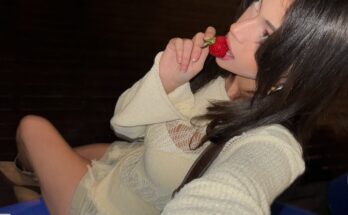

The crowd is waiting. The murmurs settle into a still silence. A beat of anticipation hangs in the air. And then — the lights turn on. In that moment, I am seen. Or rather, a version of me is. A crafted image, a polished performance, a character curated for applause. But who am I, truly, when the lights turn on?
For most of my life, I’ve chased the spotlight. Not necessarily for fame or glory, but for a sense of validation — the comforting assurance that I mattered, that I was doing something worthwhile. On stage, at school, in my social circles, even online — I became someone people looked at. Someone who made others laugh, think, or feel. I molded myself into a person that could be loved, admired, or at the very least, acknowledged.
The lights — literal or metaphorical — became a source of identity. In their glow, I stood taller. I was more articulate, more charming, more… complete. Or so I thought.
But lights do strange things. They illuminate, yes, but they can also cast deep shadows. They can obscure what’s not meant to be seen. They can warm you and burn you in the same instant. And they can make you forget that, once they’re gone, the world is different. Quieter. Realer.
It took time — and some painful lessons — for me to realize that I was losing sight of who I was when the performance ended. I began to notice that I felt hollow when I stepped away from the crowd. The jokes stopped landing, the applause faded, and I was left with myself — stripped of the persona I had so carefully maintained.
Who am I when the lights turn on? The question is usually phrased the other way around — Who am I when the lights go off? — as if our truest selves live in darkness. But in many ways, the opposite is true. When the lights turn on, that’s when the world sees us. That’s when masks are worn, when scripts are followed, when we assume the roles we’ve been taught to play.



I’ve been a performer in many areas of life. I’ve worn the mask of the overachiever, desperate to meet expectations. I’ve played the role of the caregiver, always saying “I’m fine” so others wouldn’t worry. I’ve been the friend who never says no, the student who always raises a hand, the worker who never complains — because that’s who I believed I had to be when the spotlight hit me.
But none of those versions are the whole truth. They are fragments, curated and choreographed for specific audiences. And they’re exhausting to maintain.
Lately, I’ve been trying something different. I’m learning to let the lights shine on my real self — the unfiltered, sometimes uncertain, sometimes awkward version of me. I’m starting to believe that vulnerability can be a performance too, but one with deeper roots. There’s a power in saying, “This is me, flaws and all,” and standing in the light without flinching.
Being authentic doesn’t mean rejecting every role or mask we’ve worn. It means understanding where those masks come from — why we put them on in the first place — and deciding when it’s safe to take them off. I’m not trying to destroy the parts of me that thrive in the spotlight. I’m just trying to anchor them in something real.
There’s beauty in performance. There’s meaning in stepping into the light and offering something to the world. But now, I want that offering to come from a place of truth, not just polish.
So who am I when the lights turn on?
I am someone learning to be whole, not perfect. Someone learning to let silence speak as loudly as applause. Someone brave enough to be seen — not just admired.
When the lights turn on now, I try to let them reveal me, not just a version of me. I try to show up without needing to be the smartest, the funniest, the most successful. I let my insecurities live alongside my strengths. I remind myself that real connection comes not from impressing others, but from being willing to be known.
And in those moments — when I stop performing and start being — I feel something new. Not just attention, but peace. Not just applause, but resonance. A quiet, steady voice inside me says, “This is you. And that is enough.”



